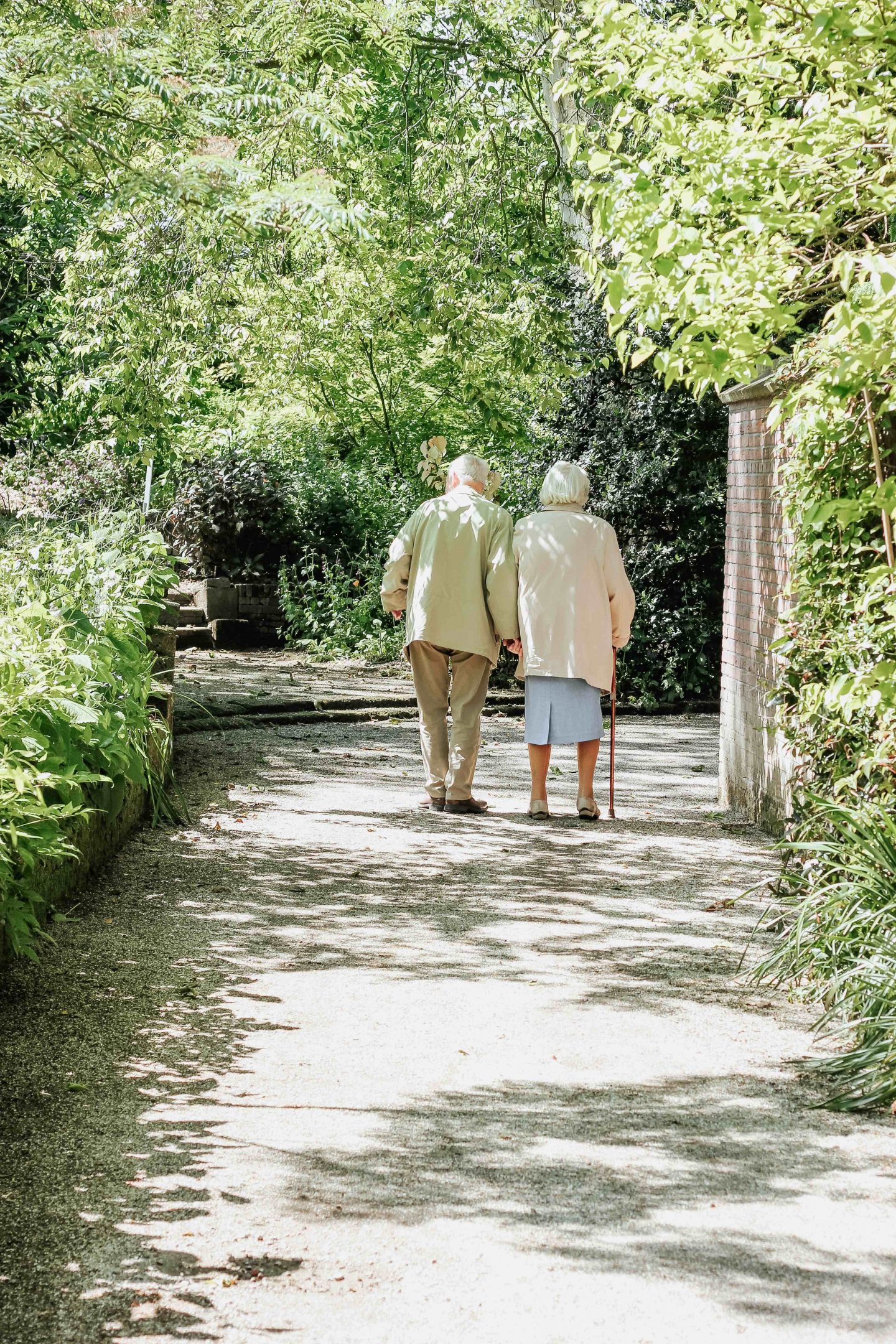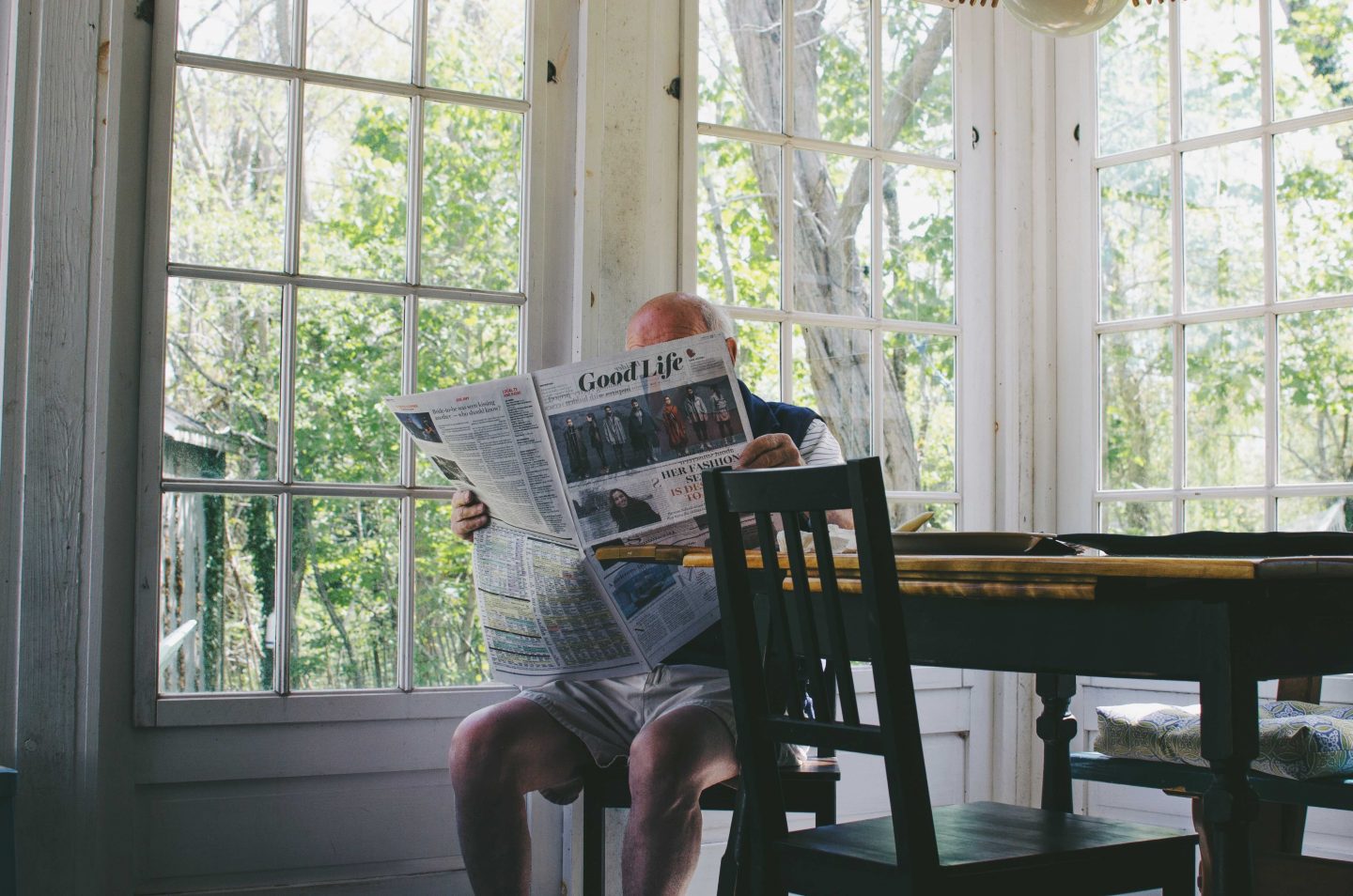Last Updated on October 14, 2019 by Kristen
 Photo by Micheile Henderson
Photo by Micheile Henderson
As parents get older, adult kids worry. Tile floors, marble stairways, and long drives to the grocery store have us on edge. What use are those extra bedrooms and flights of stairs? A single story, smaller space—preferably in a retirement community—is the obvious solution.
At least it seems so to adult kids who see broken bones in their parents’ futures. But often parents want to stay put, despite logical arguments about safety and convenience. When did mom and dad get so stubborn and unreasonable?
But usually there’s more to it than parents wanting to drive us crazy. After living in a home for decades, a house is an identity. A neighborhood is a family. And the loss associated with leaving the relationships and community our parents have built is very real and very painful. The neighbor who waves on a daily walk, the hardware store guy who knows your name, a familiar view from a porch: these are all the small but significant details that make up a life.
“The loss of putting somebody in a place where they aren’t connected in some cases can be as damaging as a physical injury—to the psyche, to the spirit, to all of that,” said Heather Bornfeld a psychotherapist in San Francisco, based on her experience with elderly clients. And it’s often difficult for adult children to understand that physical safety isn’t always paramount. “I think some of that is because you don’t really see your parents as people when you’re a kids, and that’s often true through adulthood.”

Photo by Sam Wheeler on Unsplash
It’s hard to hear that staying in the home they know and love is more important to our parents than protecting against the risk of injury or even death. Don’t they want to stay alive and healthy—for us? What could be more important than their children? It’s tough for kids, even middle-aged ones, to imagine our parents might put their own needs above ours.
When Bornfeld began her work nearly 20 years ago, she believed in safety first. She agreed that marble stairs are broken hips waiting to happen. Forgetfulness might mean a gas stove left on. A smaller, more manageable home was a must. But the longer she met with older clients in her practice, the more she realized how deeply essential a known, comfortable, familiar physical space was to their identity. Leaving home can feel nearly as debilitating as a broken hip.
Recently, I learned of a situation where that truth became tragically clear: a friend’s mother tried to take her own life—unsuccessfully thank goodness—days before she was scheduled to move into an assisted living facility. Her suicide attempt perhaps can’t be blamed on a single trigger. But it also might indicate how fundamentally important home is to a human being’s life.
Several moths ago, my husband got up the nerve to broach the subject of selling her home with my mother-in-law, who lives in a marble-covered two-story home with a rarely-used pool.
“No. I will die in this house,” she said, which seemed utterly unreasonable at the time.
But after my interview with Bornfeld, it struck me that moving was literally more difficult to face than dying in her longtime home, whatever the cause. She was telling us exactly what she wanted, but we couldn’t hear it.
There are some circumstances—dementia, for example—when it may become impossible for a parent to stay at home. And whether to stay or go won’t always be 100 percent clear. But when problems are mostly anticipated, communication is hugely important, Bornfeld and many other experts say. We need to be willing to listen and really hear what our parents want—and to accept that they have desires that have little to do with us.
To get a conversation started, Bornfeld recommends physician and author Atul Gawande’s book Being Mortal, as well as the following 5 questions originally developed by palliative care physician Susan Block for end-of-life patients and adapted by Gawande to be useful for anyone coming to terms with aging and becoming less independent.
- What is your understanding of where you are and your illness?
- What are your fears or worries for the future?
- What are your goals and priorities?
- What outcomes are unacceptable to you? What are you willing to sacrifice and not?
- And later, what would a good day look like?
Even if your parents are not facing a specific illness, it’s important to know what they value as they live their later years. It’s not easy to bring up these topics. As Gawande says in this interview: “You will get shut down, but another moment will come.”
